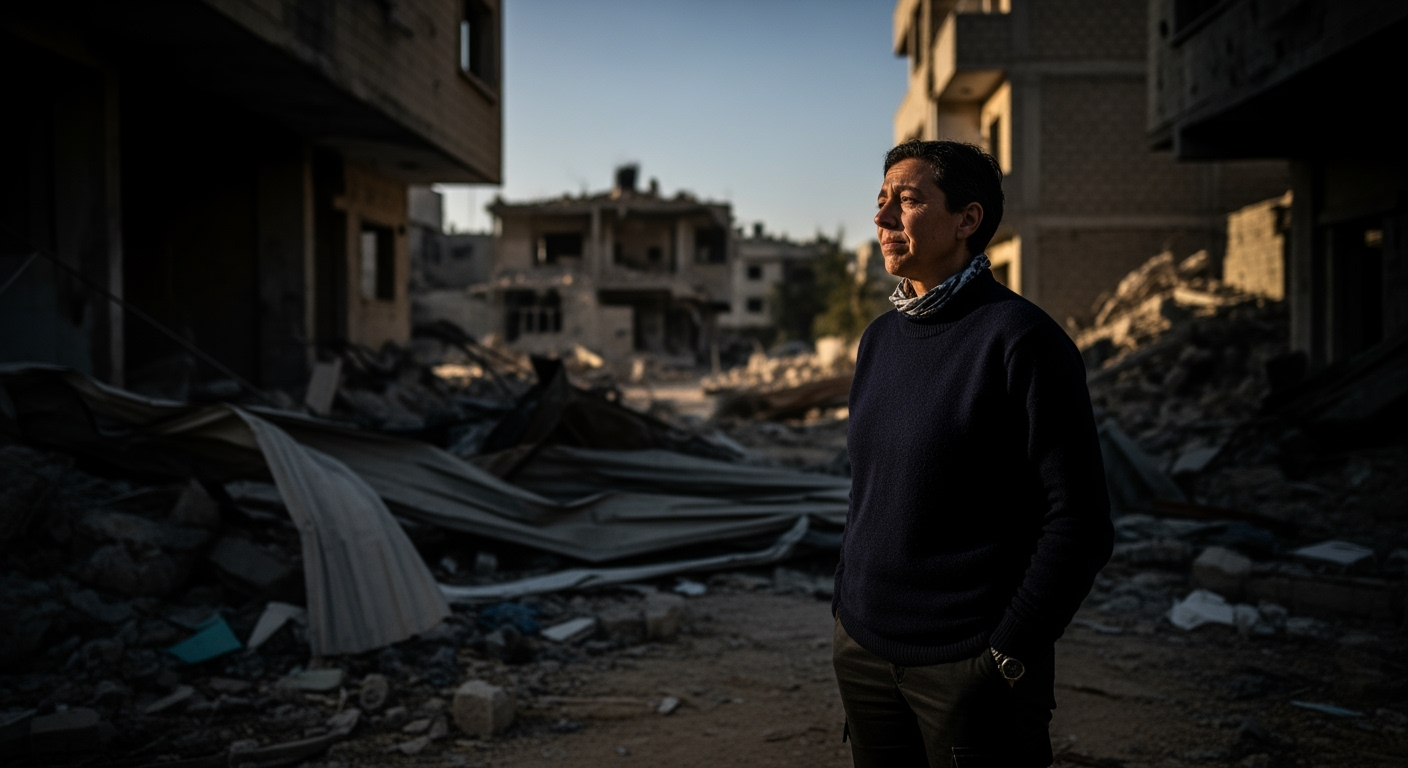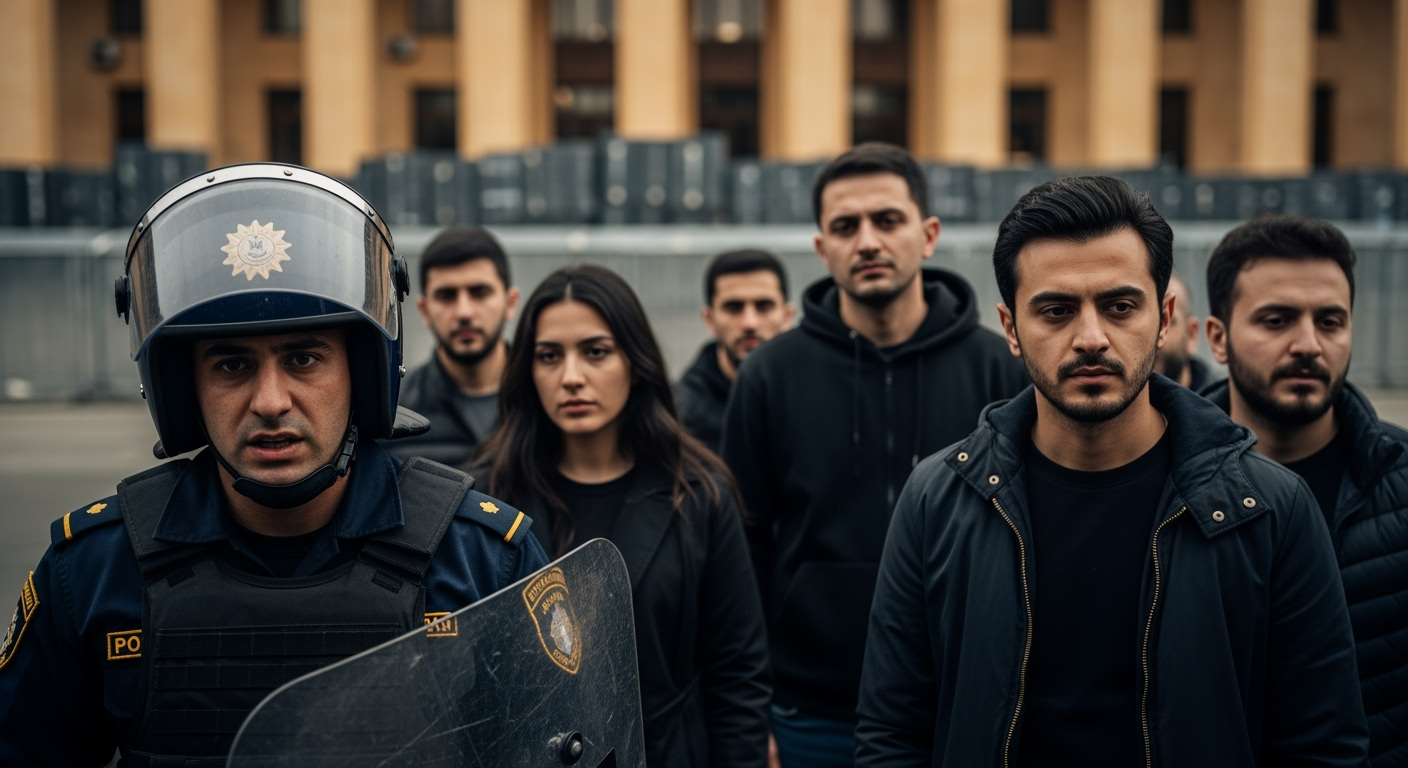Related Articles

UN Warns Syria on 'Knife-Edge,' Risks Desperate Future Resembling Libya

Trade Winds Shift: Trump Tariffs Unwittingly Cement India-UK Alliance





The trial of five individuals in Hajnówka, Poland, for assisting migrants and refugees at the Poland-Belarus border has ignited a fierce debate about the criminalization of humanitarian aid. The case, dubbed the "Hajnowka 5," has drawn international attention, raising questions about the extent to which individuals should be penalized for providing basic necessities to those in need.
The five defendants stand accused of "facilitating the stay on the territory of the Republic of Poland in violation of regulations." The charges stem from incidents in March 2022, when they provided assistance to a group of migrants, including an Iraqi family with seven children and an Egyptian man. The aid included food, clothing, shelter, and transportation away from the border area. Prosecutors argue that these actions violated Polish immigration laws, while supporters of the "Hajnowka 5" contend that they were simply acting out of compassion and fulfilling a moral obligation to help vulnerable people.
Four of the activists are accused of assisting in the illegal crossing of the border, while the fifth is charged with providing sustenance and shelter to migrants already within Poland. If convicted, they could face prison sentences ranging from three months to five years. The prosecutor initially requested that the entire hearing be closed to the public, but the court only partially granted this request, allowing the defendants to speak freely and witnesses to testify in public. However, the prosecutor's questioning of the accused was held behind closed doors.
The charges against the "Hajnowka 5" were initially filed in 2022, but the case has gained renewed prominence amid increasing scrutiny of Poland's border policies and the treatment of migrants attempting to enter the country from Belarus. The trial, which began in January 2025, is taking place in the District Court in Hajnówka, a town near the border that has become a focal point for both migration and humanitarian efforts.
Since 2021, the Poland-Belarus border has been the site of a humanitarian crisis, with thousands of migrants, primarily from the Middle East and Africa, attempting to cross into the European Union. The Belarusian government, led by Alexander Lukashenko, has been accused of deliberately orchestrating the influx of migrants to destabilize the EU, luring them with false promises of easy passage into Europe.
In response, the Polish government has implemented strict border controls, including the construction of a wall and the deployment of thousands of soldiers and border guards. Human rights organizations have criticized Poland's actions, citing reports of violence, pushbacks, and inhumane treatment of migrants. The situation has been further complicated by a restricted access zone along the border, preventing journalists and aid workers from entering the area.
The trial of the "Hajnowka 5" is widely viewed as a test case for the criminalization of humanitarian aid in Poland and across Europe. Human rights groups argue that prosecuting individuals for providing basic assistance to migrants sets a dangerous precedent and undermines fundamental principles of human dignity and solidarity. They contend that such prosecutions are part of a broader trend of governments cracking down on civil society organizations and individuals who assist migrants and refugees.
Critics of the prosecution point to international law and ethical principles that recognize the right to provide humanitarian assistance to those in need, regardless of their legal status. They argue that focusing on prosecuting Good Samaritans diverts attention from the root causes of migration and the need for humane and effective policies to address the challenges of irregular migration.
The case has sparked widespread public debate in Poland, with demonstrations of support for the "Hajnowka 5" taking place outside the courthouse in Hajnówka. Supporters argue that helping those in need is a moral imperative and that the defendants should be commended, not punished, for their actions.
"Helping is our duty, and no one should fear helping those in need," said Kamila Jagoda Mikołajek, one of the accused, during a demonstration. "I do not regret what I did. I am proud of myself and every person who helps. We helped, we are helping, and we will continue to help."
The trial is also being closely monitored by international organizations, including Human Rights First and the Helsinki Foundation for Human Rights. These groups have condemned the prosecution and called on the Polish government to drop the charges against the "Hajnowka 5." They argue that the case highlights the growing challenges faced by human rights defenders and civil society organizations working to protect the rights of migrants and refugees in Europe.
The "Hajnowka 5" trial comes at a time when migration policies are becoming increasingly restrictive across Europe. Several EU member states have tightened their border controls, increased deportations, and limited access to asylum. These policies have been criticized by human rights organizations for violating international law and undermining the rights of migrants and refugees.
The trial also coincides with ongoing debates within the EU about the reform of the bloc's asylum system. The proposed reforms have been met with resistance from some member states, particularly those on the front lines of migration flows, who argue that they place an unfair burden on their countries. The outcome of the "Hajnowka 5" case could have significant implications for these debates, potentially influencing the direction of future migration policies in Poland and across Europe.
As the trial continues, the "Hajnowka 5" have become symbols of resistance against what some see as the inhumane treatment of migrants and refugees. Their case serves as a reminder of the importance of upholding humanitarian principles and protecting the rights of all individuals, regardless of their legal status. The next hearing is scheduled for April or May 2025.